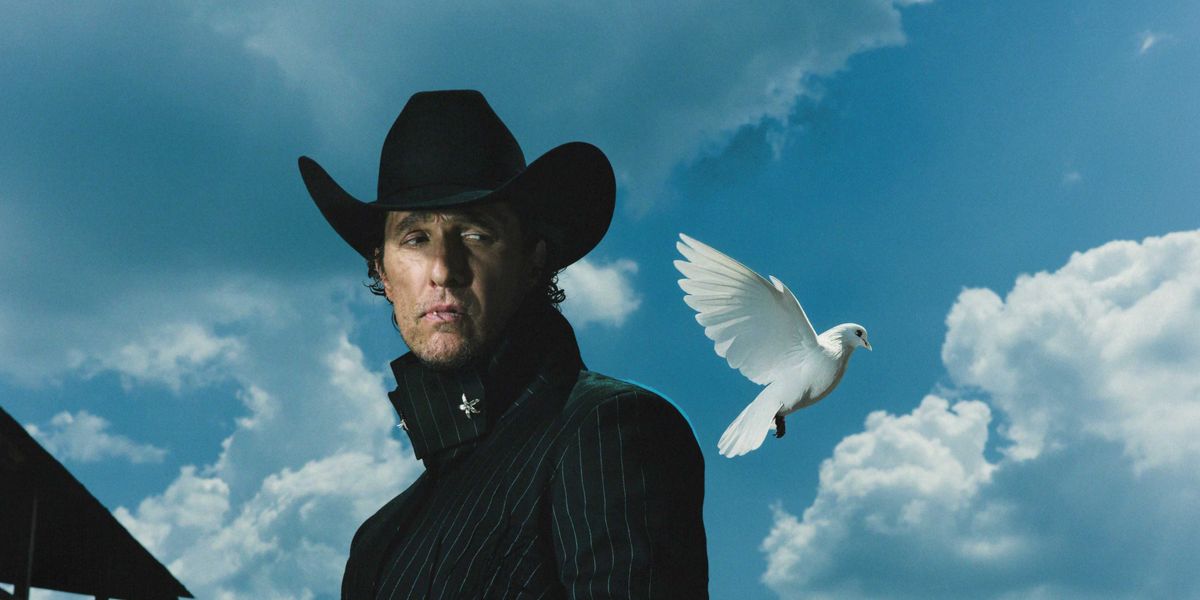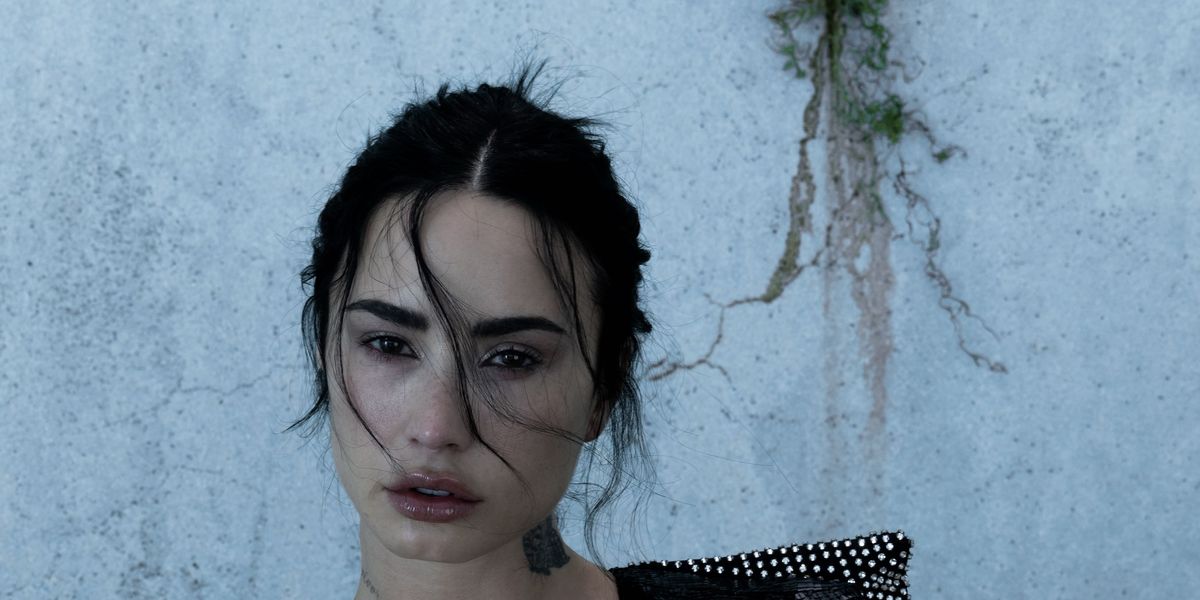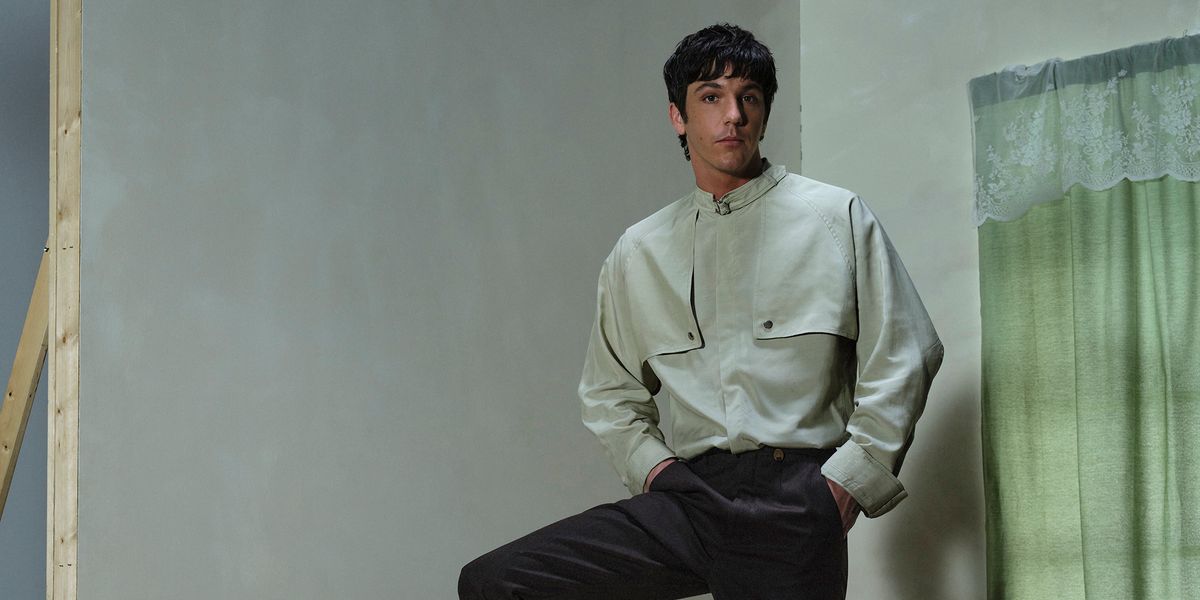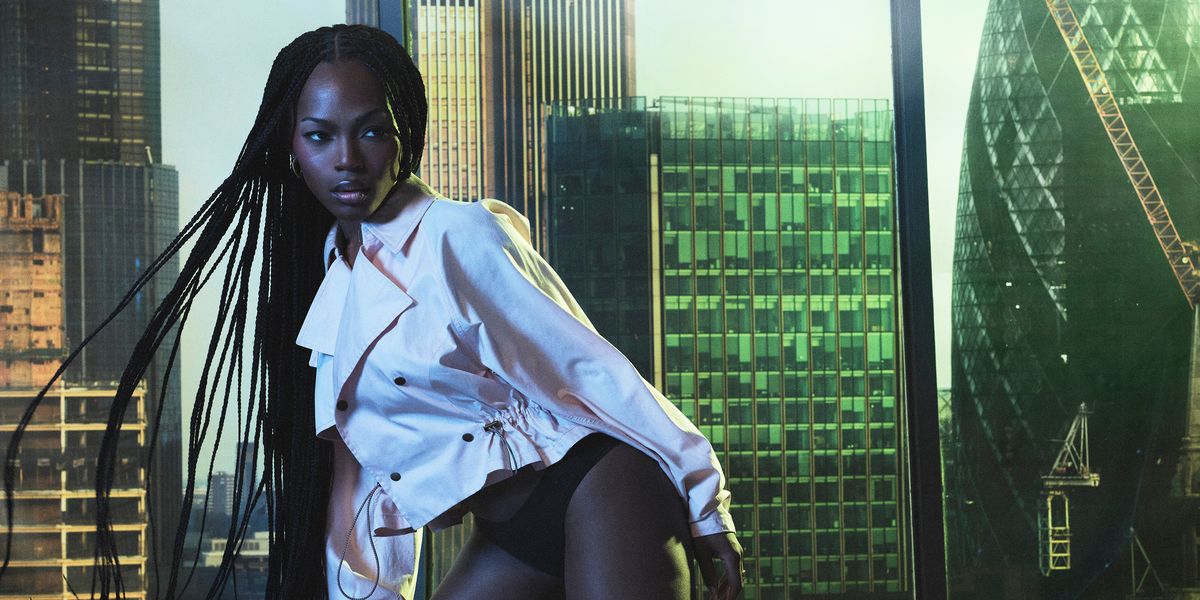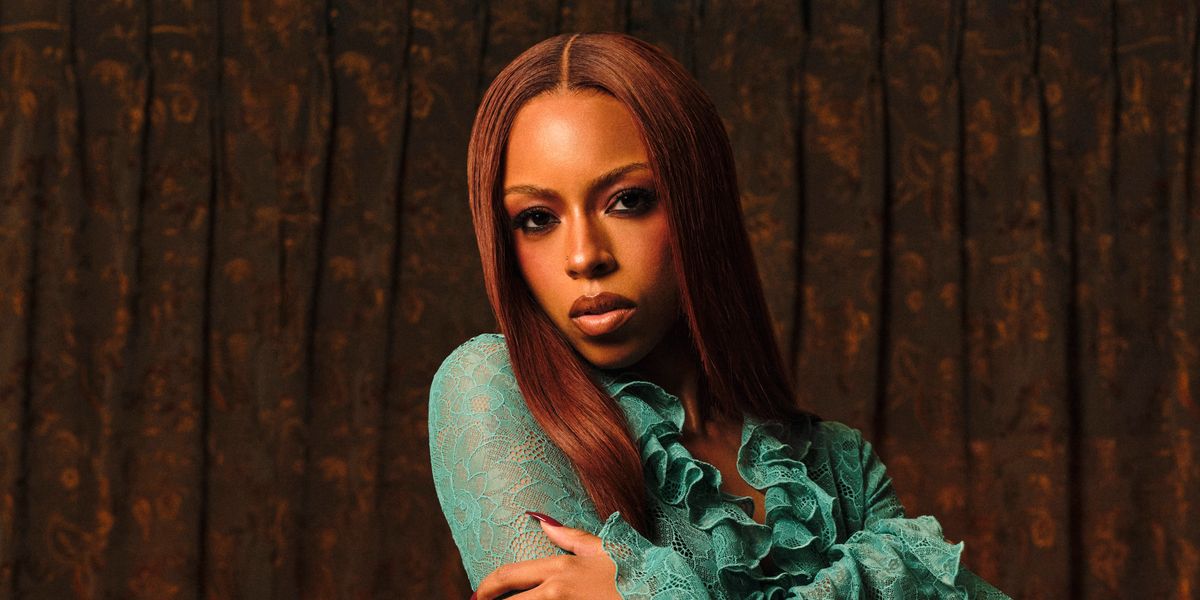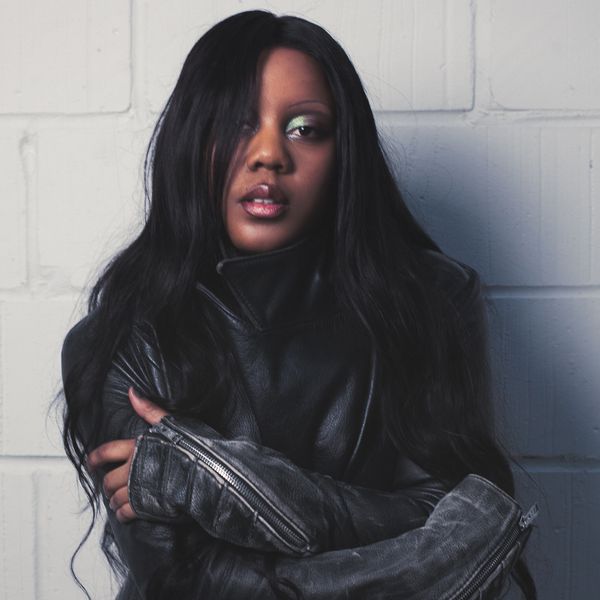
DJ Lyzza Creates Her Own Lane on 'Too Slow'
By Joan Summers
Apr 25, 2024Lyzza doesn’t just want to change the game, she wants to change the entire system that runs it.
The globe-trotting DJ sat down with PAPER to talk about “Too Slow,” from her upcoming mixtape SUBSTATE. The track seeps with raw, confrontational energy, mirroring Lyzza’s ambitions for the project. “I wanted to push myself as a songwriter but also push myself into vulnerability by digging deep into personal experiences that some might not be able to sing along to,” she tells us. As Lyzza sees it, “The personal is not always pretty or pleasant.”
The track mirrors the rest of the songs on the tape. SUBSTATE serves, as Lyzza puts it, like an “urgent dispatch” on her experiences in the music industry, from racial profiling to run-ins with Homeland Security, even down to the games creatives are forced to play. “I’m very idealistic, but I do believe the world can be a better place if we treat everyone fairly, and I try to entertain that ideal in the ways I move through it," she says. "I get that some people get to the point where they start ‘playing the game’ too.”
Luckily, Lyzza’s carved her own lane. She works with Emptyset’s James Ginzberg on the engineering side, having collaborated with fellow club staples and legends like Mykki Blanco, Nicholas Jaar and even the late SOPHIE. Her track “Talk Ur Talk” was even featured on Mugler’s Spring/Summer 2020 show.
Back to “Too Slow.” The video is out now, and PAPER has the exclusive premiere. Check it out below, as well as our interview.
You start the EP on “Blackball”with the proclamation that “I’m going to say what I want to say/ Not every song is made to sing along too.” It totally sets the tone for the rest of the tracks. What inspired you to frame your next project this way?
The people who have been following me since my first releases know that one of the ways in which I work is through social reflection, with elements of psychoanalysis. Until now, most of my songs have leaned heavy on aspects of a universal experience within the lyrics, but this time I wanted to push myself as a songwriter and push myself into vulnerability by digging deep into personal experiences that some might not be able to sing along to. The personal is not always pretty or pleasant. I think this is why we as people wait until we let people in as we’re never sure what the reaction might be. I guess I felt ready to show these parts of myself bluntly when I started working on SUBSTATE. [I was] eager and curious to see what would be the reaction to these parts of me.
The entire EP is backed by various experiences you had in the industry and your own life, and the narrative on “90210” stands out among them. Could you walk us through the story behind the track?
I’ll keep it brief, as the lyrics in “90210” point to the fact I’m caught up in some legal stuff, and I’m not sure what I can and can’t share. I organically rolled into making music as a teenager and the rest of it has just been me following my sense of intuition. I live and learn as an artist by fucking around and finding out, and let’s say I did just that, but unfortunately this time Homeland Security was involved.
You talk about “marrying” the poppier sounds of MOSQUITO (2022) with your earlier work, which is more brazen and confrontational. What sounds did you find yourself drawn to through this experimentation on SUBSTATE?
I was feeling pretty inspired by the wave of sounds that were surrounding me when I first started DJing in 2016, raw club music sounds that made me fall in love with experimental music back then. Still, I wanted to find little gaps where I could still introduce some familiarity so elements of indie-pop and electro-pop were important for me in the process.

You worked with Emptyset’s James Ginzburg for the project, with him as engineer. How was that collaboration, and what drew you to James' work via Emptyset and Subtext Recordings?
I’ve been a fan of James’ work for quite some time — from his own music, to the role Subtext Recordings played in the innovation of electronic music as well as the work he did with others. Although I’m quite camp, I have been active in the underground for a while and have found myself orbiting some musicians that James has worked with before like Ziur, Ic3Peak and Pan Dajing, who remind me how pure sound can sound. I’m not shy to say I’m in love with the musical niche I’m in and impressed by so many of my peers; having James work on my music just seemed like the next logical step to feel closer to that.
The video for "Too Slow" features some sick outfits. I loved zip-up with the cutouts and fringe skirt specifically. Did you work with or source from any designers in particular for the video?
I don't know where all the items are from, but the video was styled by Luca Wowczyna who has an incredible eye for what I love to do most within my work, which is world-building. Luca basically builds characters! Luca and I had been speaking about working together for nearly four years now, and I’m happy we were able to make it happen in a meaningful way. I tend to work with and pick my collaborators in a way where there's some report prior to the collaboration so I can just be a bimbo on set mentally and just perform at my best because i trust them to make me shine.
One of your goals with this record was to show others how music and the club, can bring people together through “connection, organization and care.” What ways do you find the industry working against those ideals, and alienating both artists and club-goers?
We can see artists, musicians and people within club scenes speaking out about how these constructs we are living in currently are favorable for only a few. For a long time, anti-social behavior has been rewarded within creative industries; we see this reflected in how many artists have had to speak up about being exploited by normalizing musicians not earning money off their music or having to sell their soul for recognition. I’m very idealistic, but I do believe the world can be a better place if we treat everyone fairly, and I try to entertain that ideal in the ways I move through it. I get that some people get to the point where they start "playing the game," too. By current standards, not playing the game can be masochistic. but I’ve never believed in that mindset — kill or get killed feels very colonial, and I’m confident with all the planetary aspects from 2024 on we’ll slowly be moving out of that.
You affectionately call your listeners "Lyzzards." What’s the origin of the name?
I’ve always been a big fan of secret societies, occult and mysticism. I started my "Club LYZZA" thing in 2018 because I used to love Club Penguin and that felt super secretive to me when I was a child. Me making club music is actually a detail that fits perfectly within that. Lizards are incredibly cool-looking and have this lore surrounding them, like reptilian human theories within politics and power structures. As my name is Lyzza, Lyzzards seemed like the perfect name to call the people in the cult, sorry, fan base I’m building. The principles are that it's important to realize the world is complex and we can push against the status quo together. It’s more than just a music thing, it’s a mentality of looking at the world, honoring compassion and understanding that big change happens over time between the repetition of it all through organization and care like we discussed before. It’s quite spiritual actually. I love the Lyzzards, they're all cool as hell.
Photography: Reece Owen
Related Articles Around the Web
MORE ON PAPER
Entertainment
Matthew McConaughey Found His Rhythm
Story by Joan Summers / Photography by Greg Swales / Styling by Angelina Cantu / Grooming by Kara Yoshimoto Bua
Story by Joan Summers / Photography by Greg Swales / Styling by Angelina Cantu / Grooming by Kara Yoshimoto Bua
30 September
Music
Demi Lovato Is No Joke
Story by Ivan Guzman / Photography by Jason Renaud / Styling by Chris Horan/ Makeup by Loftjet / Set design by Allegra Peyton
Story by Ivan Guzman / Photography by Jason Renaud / Styling by Chris Horan/ Makeup by Loftjet / Set design by Allegra Peyton
15 September
Music
Role Model Isn’t In Kansas Anymore
Story by Tobias Hess / Photography by Richie Talboy / Styling by Angelina Cantú / Grooming by Jerrod Roberts / Set design by Allegra Peyton
Story by Tobias Hess / Photography by Richie Talboy / Styling by Angelina Cantú / Grooming by Jerrod Roberts / Set design by Allegra Peyton
14 August
Internet
Quen Blackwell Takes Over
Story by Ivan Guzman / Photography by Richie Talboy / Styling by Angelina Cantú / Makeup by Kimora Mulan / Hair by Malcolm Marquez / Nails by Kimmie Kyees / Set design by Allegra Peyton
Story by Ivan Guzman / Photography by Richie Talboy / Styling by Angelina Cantú / Makeup by Kimora Mulan / Hair by Malcolm Marquez / Nails by Kimmie Kyees / Set design by Allegra Peyton
11 August
Music
Ravyn Lenae Enjoys the View
Story by Erica Campbell / Photography by Richie Talboy / Styling by Angelina Cantú / Makeup by Matthew Fishman / Hair by Jacob Aaron Dillon / Nails by Kimmie Kyees / Set design by Allegra Peyton
Story by Erica Campbell / Photography by Richie Talboy / Styling by Angelina Cantú / Makeup by Matthew Fishman / Hair by Jacob Aaron Dillon / Nails by Kimmie Kyees / Set design by Allegra Peyton
04 August
